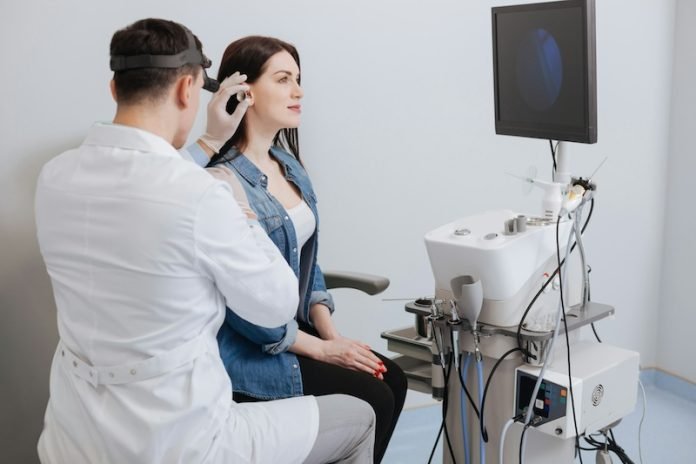
Diabetes and hearing loss are two prevalent health issues that significantly affect millions of people globally.
Interestingly, recent studies have shown a strong link between diabetes and an increased risk of hearing impairment.
This review explores the connection between these conditions, highlights potential treatments, and provides guidance on managing the risk.
Diabetes is a chronic condition that impairs the body’s ability to process blood sugar, leading to potentially high levels of glucose in the blood.
Over time, this excess glucose can damage various bodily systems, including nerves and blood vessels. The inner ear is particularly vulnerable to this damage because it relies on small blood vessels and nerves to function correctly.
Research over the past few years has strengthened the understanding of how diabetes contributes to hearing loss.
A significant study by the National Institutes of Health (NIH) found that people with diabetes were twice as likely to have hearing loss as those without the condition.
This susceptibility may be due to the high blood sugar levels associated with diabetes, which can damage the blood vessels and nerves in the ear, leading to impaired hearing.
Link Between Diabetes and Hearing Loss:
The inner ear is an intricate part of the body that relies on good blood flow to function properly. In individuals with diabetes, high glucose levels can cause microvascular damage—harm to the small blood vessels—that can affect the blood supply to the ear, leading to hearing loss.
Additionally, diabetes can lead to neuropathy, a condition where nerves are damaged, which may also impact the nerves in the ear responsible for transmitting sound signals to the brain.
Treatment and Management:
While there is no direct cure for hearing loss caused by diabetes, several management strategies can help mitigate the risk and manage the condition effectively:
- Blood Sugar Control: Maintaining optimal blood sugar levels is crucial. Good diabetes management can help minimize the vascular and nerve damage that can lead to hearing loss.
- Regular Hearing Checks: Early detection of hearing loss can make a significant difference. Regular hearing exams should be part of the healthcare routine for individuals with diabetes, allowing for early intervention.
- Hearing Aids: For those who have already experienced hearing loss, hearing aids can be a practical solution. These devices are increasingly advanced, with options that can be specifically tailored to the type of hearing impairment experienced by diabetic patients.
- Protective Measures: Avoiding exposure to loud noises, using protective earplugs when necessary, and limiting the use of headphones at high volumes can help preserve hearing.
- Healthy Lifestyle Choices: Regular exercise and a healthy diet can improve blood flow and general health, potentially reducing the risk of hearing loss. These lifestyle choices also contribute to better diabetes management.
Further Considerations:
It is also essential for both patients and healthcare providers to be aware of the potential for hearing loss in individuals with diabetes. Increased awareness can lead to earlier testing and intervention, which can significantly improve the quality of life for those affected.
In summary, while diabetes is linked to an increased risk of hearing loss, through careful management of blood sugar levels, regular monitoring, and protective measures, individuals can significantly reduce their risk or manage the condition effectively.
As research continues, it is hoped that more targeted treatments will become available. For now, understanding the connection between diabetes and hearing loss is a vital step in protecting hearing and enhancing overall health for those with diabetes.
If you care about hearing loss, please read studies about antibiotic drug that can lead to hearing loss, and whether you should get an hearing aid or see a specialist.
If you care about dementia, please read studies about how the Mediterranean diet could protect your brain health, and these antioxidants could help reduce dementia risk.
Copyright © 2024 Knowridge Science Report. All rights reserved.



